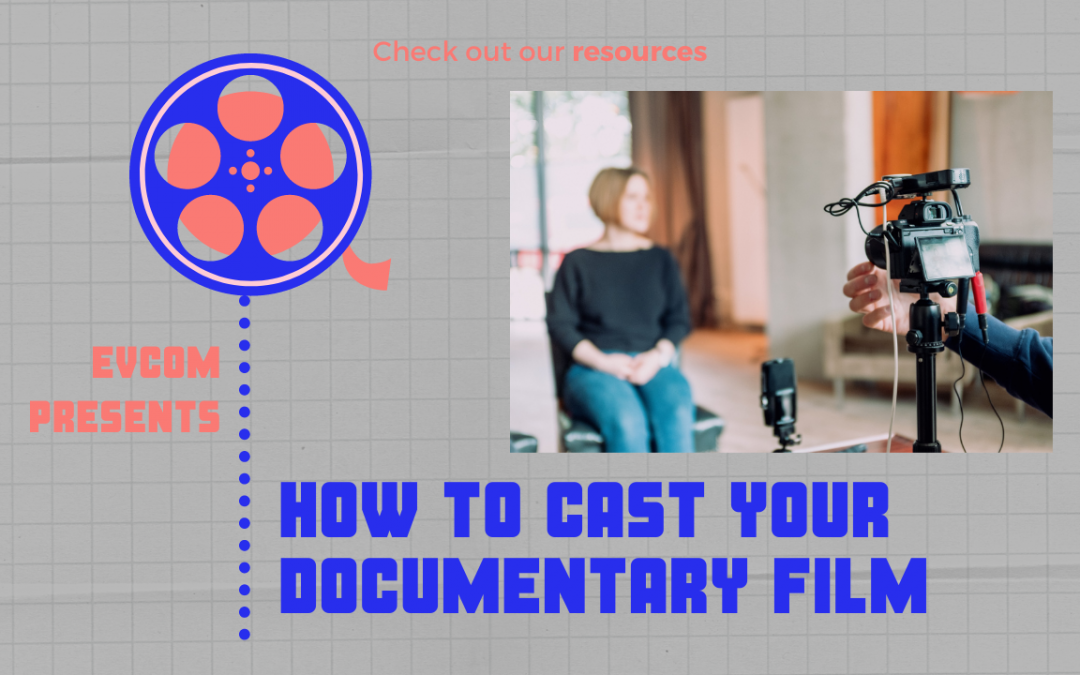If you’re making a film with people (which is most films) then the people you choose are going to be instrumental in shaping the final product. You might not think you need to cast a documentary but it’s still an important part of the process. In fact it can be especially delicate thing to approach because you are asking people to open up about their own stories.
Starting off by thinking about how you are going to pitch involvement in your film to your target audience. What are the benefits of taking part? How can you allay any concerns people might have?
The corporate angle
Big corporations often make documentary style films. It might be a film where employees talk about how much they love working somewhere, in order to support a recruitment campaign. It might be a film where a company is communicating it’s strategy around diversity and inclusion, featuring diverse members of the company speaking about their experiences. In these cases, you’ll be casting from within a company. If the film will feature several people speaking, make sure they come from a range of departments across the company, and ensure that the diversity of the people you are filming reflects the diversity of the company.
You might not have a chance to go into the company and scout people to interview yourself. Sometimes the company has already asked around or even picked people, or don’t want to pay for you to come round. A good compromise can be a Zoom/Teams call with potential people the company has put forward That way you don’t have travel expenses etc but you still get an opportunity to get to know them and voice any concerns.
If you do have the option to select your cast, go into that company and meet as many people as you can – without a camera. You’ll get to know people in a natural environment, over a cup of coffee for example. You’ll get to hear their perspective (and see what it could bring to the film) and you’ll get to see how they speak, whether they gesture, how emotive their face is, how open and articulate they are etc – would they work well in front of a camera? Having a preliminary conversation like this also helps to build trust, which is important when you’re asking people who aren’t used to being filmed to be filmed and especially if you’re asking them to share anything particularly vulnerable. Don’t ask people to share anything massive at this stage – if they are then not selected it can feel like their personal struggle has been rejected or isn’t good/ exciting enough.
When you’ve selected some people who you think might work for the film, share your pitch with them. Be really transparent. How much would you expect them to divulge? How much time will it take? Why is the project important? Why do you think they’d be great for it?
You can see an example of a documentary film made for a big company below:
The charity angle
If you’re making a documentary film for a charity much of the same can apply. However the stakes are often very emotional. Most charity films involve telling the stories – difficult stories – of people that the charity has helped or is working with.
You could do an open call that could go out across social media and within the charities networks. However it might be more useful to speak to the charity and get their suggestions. They are likely to have worked with people they help for social media campaigns, for written pieces, for quotes here and there. They will have an idea of people who have been receptive to being involved and to telling their story. Something that’s really important to find out from potential interviewee is whether they have told their story before, and how comfortable they feel doing that.
As with the guidance above, have casual conversations with some possible candidates. Ask them questions but don’t expect them to share their whole story – it makes a rejection much more personal and potentially triggering. It’s also a good idea to ask people whether there is anything you can do to make their experience of being filmed and sharing their story more comfortable.
If someone says no, do not push them. This might happen mid-process (which is why it’s great that you’ve spoken to multiple people, and have ideas of other people you could use in your back pocket). Your film does not come above their safety and wellbeing.
Casting documentaries with charities can be a really lovely and positive experience, as people are often much happier to talk about their experiences with charities as a way to repay the help they’ve received!
Watch an example of a documentary film created for a charity below:
Explore some more resources on the subject:


